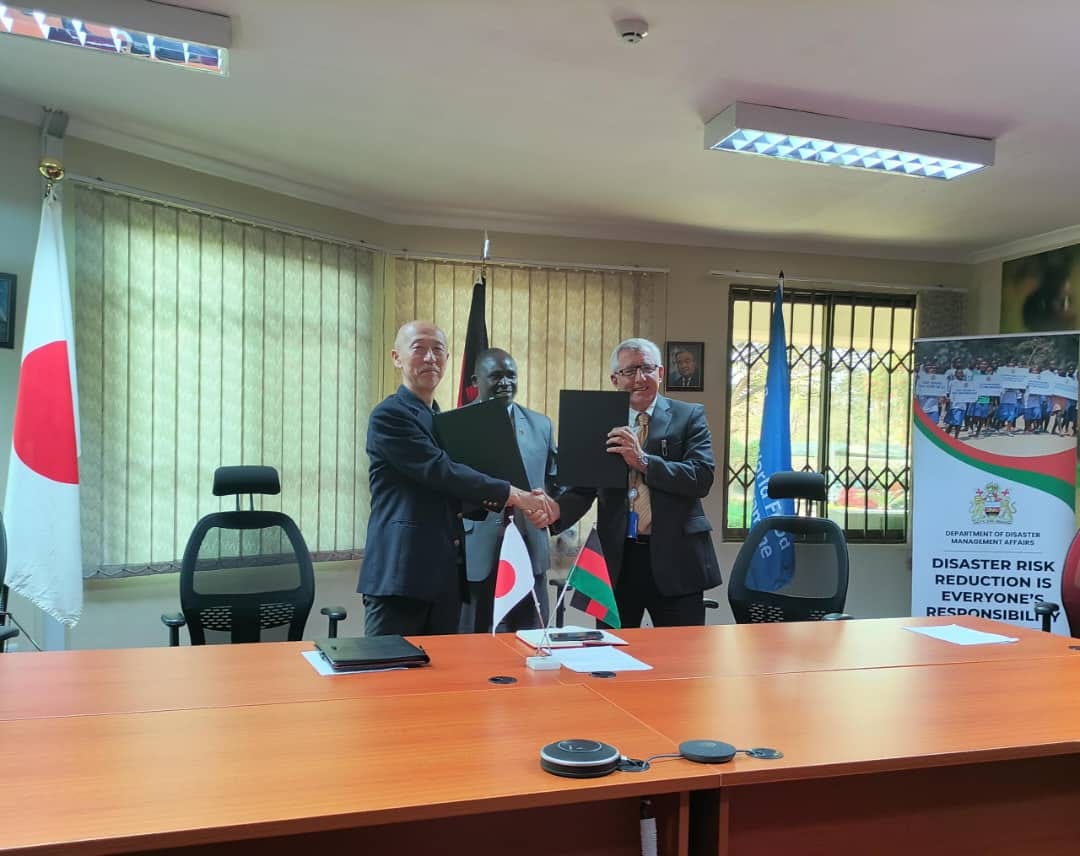Japan, WFP partner on $1.9M food aid for Malawi's climate woes
As Malawi grapples with the effects of climate change and recurring natural disasters, such partnerships prove crucial in providing relief to vulnerable populations.
LILONGWE, Malawi - The United Nations World Food Programme (WFP) and the Government of Japan have signed a significant agreement to provide food assistance worth US$1.9 million for Malawi to combat hunger as the southern African nation grapples with climate-driven crises, writes Esther Banda.
The ceremony took place on Friday, September 6, 2024, at the WFP Country Office in Area 14, Lilongwe.
## Key Points of the Agreement:
- Procurement and distribution of 1,860 metric tonnes (37,220 bags of 50kg each) of Japanese-produced rice
- Beneficiaries: Approximately 36,000 households (164,000 people)
- Aimed at addressing severe food insecurity caused by climate shocks, including the El Niño-induced drought in 2024
Paul Turnbull, WFP Country Director and Representative, emphasized the critical nature of this contribution.
"This intervention will provide a lifeline during challenging times," Turnbull stated.
He further noted that Malawi's harvest would not meet national consumption requirements, with over 2 million people potentially facing acute food insecurity even after March 2025.
Japanese Ambassador to Malawi, Mr. Yoichi Oya, highlighted the agricultural challenges Malawi has faced, including late and erratic planting rains, inadequate rainfall, and prolonged dry spells.
"Human dignity and human security are key to our cooperation," Ambassador Oya said, reaffirming Japan's commitment to supporting Malawi and ensuring no one is left behind.
Charles Kalemba, Principal Secretary and Commissioner of the Department of Disaster Management Affairs (DoDMA), expressed gratitude for Japan's timely support.
"The Government of Malawi deeply appreciates Japan's generous support as we work tirelessly to reach out to 5.7 million food-insecure people," Kalemba stated.
The agreement underscores the collaborative efforts between international organizations, donor countries, and the Malawian government to address the pressing food security challenges faced by the nation.
As Malawi grapples with the effects of climate change and recurring natural disasters, such partnerships prove crucial in providing relief to vulnerable populations.
This assistance is expected to play a vital role in Malawi's national response efforts during the upcoming lean season, providing much-needed support to thousands of families facing food insecurity.



